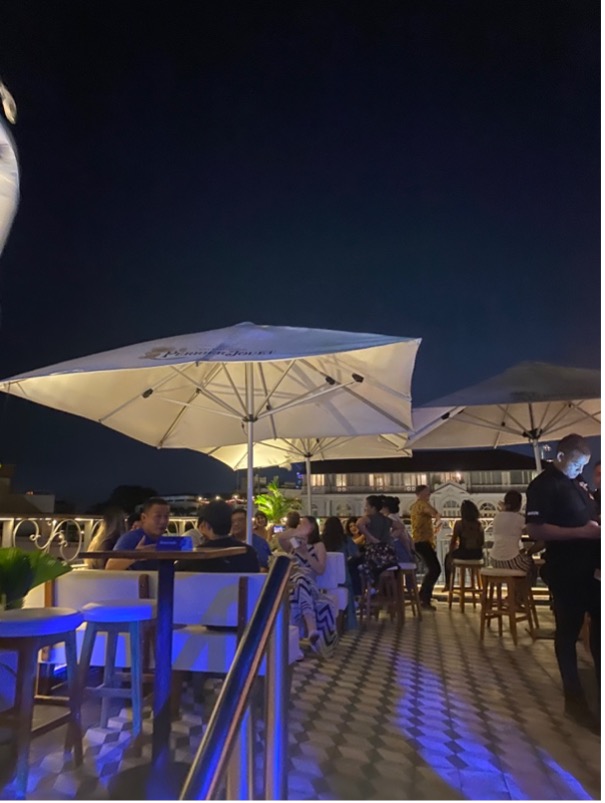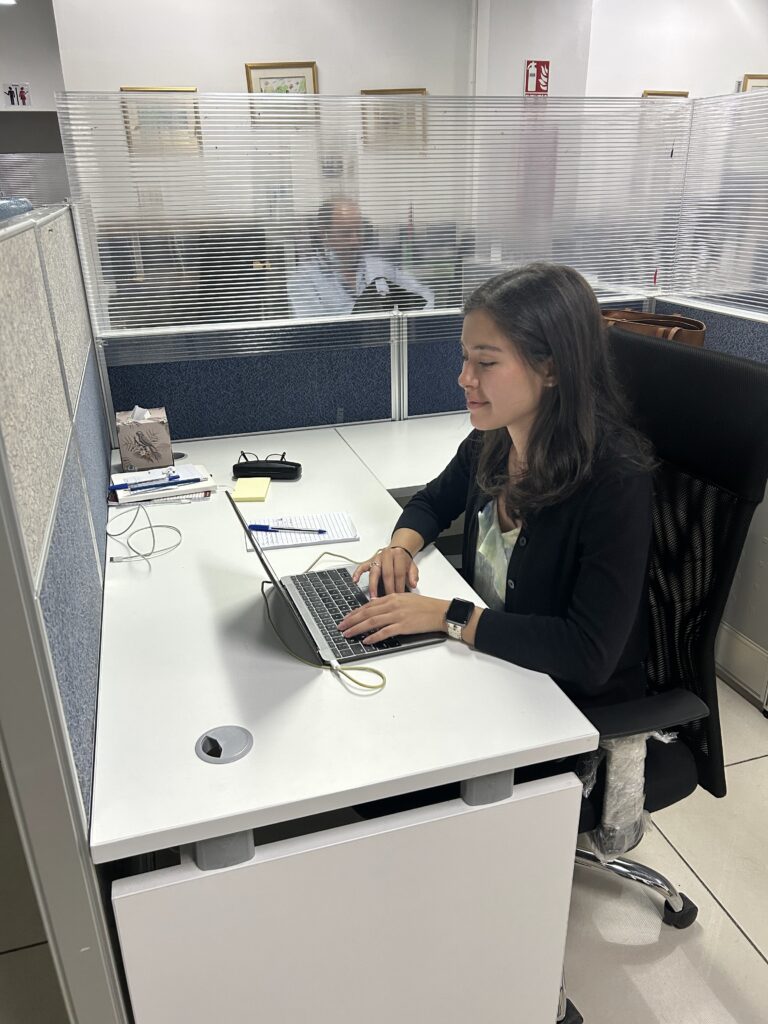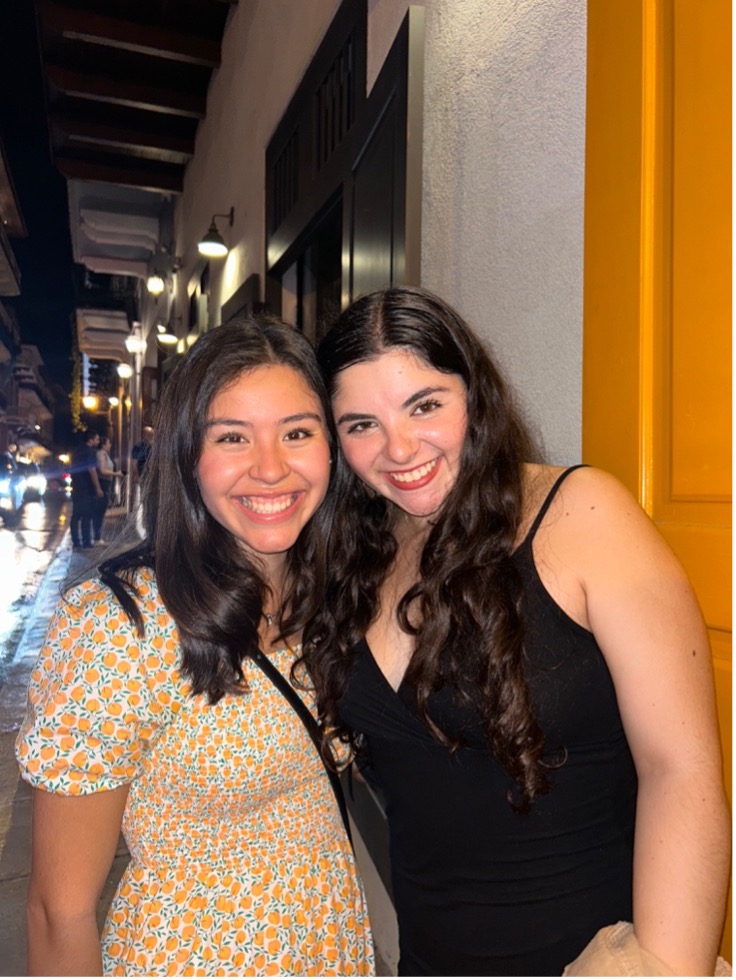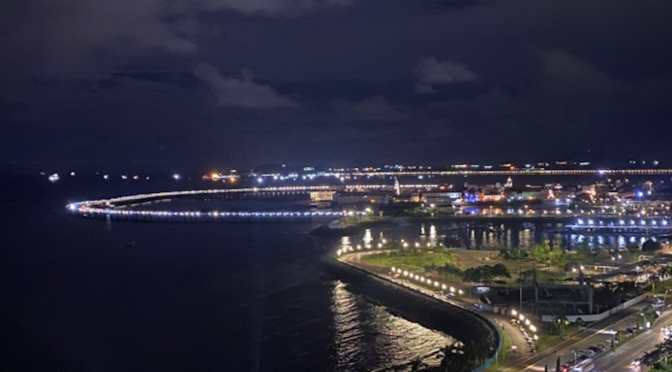By Alexys Aquino, Undergraduate student in the UT Government Department, International Relations and Global Studies Department, and Spanish and Portuguese Department
My last week in Panama went by so fast. All of a sudden, I was on a plane back to Texas and, just like that, my six weeks there were over. Now that I’m back in the U.S., I feel so aware of the things I learned in Panama and the aspects of life there that I really valued. Some of them I can implement in my life, and others I’ll just have to look upon fondly.

The thing I miss most is the fluidity of life and time. I’ve heard a lot of people say how the way time is perceived around the world varies. The U.S. is said to have a generally more rigid perception of time. Usually, if an invitation or agreed-upon time says 6pm, then it’s pretty standard to arrive at 6pm or within a few minutes of it. In most areas of life in Panama, time is a lot more fluid. I really enjoyed the ease of it. I felt that it also reflected the easygoing attitude of many of the people I met. I have to admit, it took a bit of getting used to. But by the end of my time there, I knew that 6, when meeting friends, often meant 6:45… and maybe even 7pm, but I was perfectly content to abide by those unspoken rules! Obviously, this was not always the case, particularly in professional contexts!
At IDEA, I worked on several different projects. My favorite one pertained to researching laws in Panama and in Latin America more broadly that protect and guarantee women’s rights. At UT, prior to coming to Panama, I and everyone else participating in an IDEA internship took a course on democratic and constitutional development. This course directly involved all of the students in looking at numerous constitutions around the world using Constitute (a super helpful and interesting resource—highly recommend!). It was really rewarding to get to directly use tools and skills learned in the classroom and apply them to an actual job. I essentially did similar research at IDEA where I used Constitute to look at different constitutions and their amendments.

During my last week at the International IDEA office, I had the opportunity to share some of my previous research from my UT capstone project in a presentation to the teams at International IDEA Panama and the Institute of Democratic Studies (INED) of the Panamanian Electoral Tribunal. This was a unique opportunity, particularly since my capstone project was not directly related to the work I was doing at International IDEA. My capstone paper was called “The Role of Disinformation in Conflict Environments: Case Studies of Taiwan and Malaysia,” and it was part of a partnership with the U.S. Department of State. Needless to say, it wasn’t directly related to Panama or Latin America. For this reason, it was really fun to connect the research from my paper to the work being done at IDEA.

I would say this presentation was definitely one of my biggest professional challenges for more than one reason. First, making the connection between the U.S. State Department’s interest in Malaysia and IDEA’s work in Panama was complicated. Second, I had to give the presentation in Spanish. I’ve given several presentations in Spanish throughout my college career in language classes, but I had never given a presentation on an international relations topic in Spanish. As you might’ve guessed, it’s a whole other ballgame. Finding the translations for very specific IR terms in Spanish and trying to explain concepts that I had only recently discovered in English in another language was a major task in and of itself. By the end of my presentation, I found myself incredibly grateful for the chance to develop these skills that I hadn’t yet used.
Despite the seeming distance of my topic from the Panamanian context, I found that there was a lot to be learned from comparing different environments. I think I contributed to my colleagues’ understanding of the role that disinformation can play in weakening democracies and provided them with insight into how a precarious situation could be avoided in their own country. I also think I learned a lot. I got different perspectives I hadn’t yet heard and wrestled with questions I hadn’t considered in my research. Without the input of the INED and IDEA teams, I wouldn’t have heard such diverse points of view on such a pertinent topic in today’s digital age.
In addition to the rewarding projects and tasks I worked on in the office, I had plenty of fun outside the office. My first month in Panama was filled with sightseeing and adventures around the country. Although I enjoyed the trips I got to go on, spending my last few weeks in Panama City and getting to fully explore the capital was really special. Inevitably, I visited several different coffee shops and went for a run along the famed Cinta Costera.
As my last day drew closer, each day seemed to go by faster. Since everyone in our UT cohort was leaving at different times, we started a bittersweet goodbye-dinner tradition. It was so fun for us to all get together and reminisce about our favorite parts of the experience. But, as always, saying goodbye is never fun.

I am so incredibly happy that I was able to travel to Panama, just for the sake of getting to know such a beautiful country. More than anything, I am grateful that I was able to contribute to the important work of International IDEA in its mission to support Panama’s democracy and to be part of a new and innovative partnership between UT and IDEA. I’m so thankful for the support of UT Austin’s Government Department in making this possible and for International IDEA’s willingness to let UT students be part of their valuable efforts to support democracy around the world.
